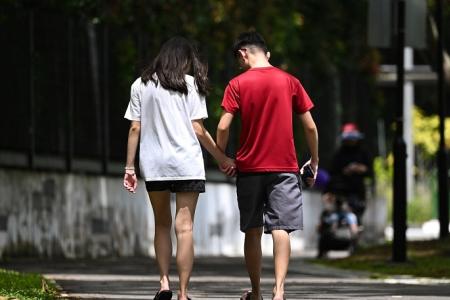Study shows improvement in racial and religious harmony in S'pore
Racial and religious harmony in Singapore has improved across a range of measures, according to a study by the Institute of Policy Studies (IPS) and racial harmony advocacy group OnePeople.sg published on Feb 3.
At the same time, the survey – now in its third edition, and which polled 4,000 Singaporeans and permanent residents in 2024 – revealed some persistent challenges and areas of improvement, such as in differing perceptions of discrimination among different racial and religious groups here.
Here are eight key takeaways:
1. Greater acceptance of all races in personal relationships
The 2024 study found that Singaporeans across the board were largely more accepting of all races in personal relationships than in the 2018 iteration of the study.
Respondents were asked if they were comfortable with local-born members of major racial groups – Chinese, Malay, Indian and Eurasian – as their spouse, son- or daughter-in-law, brother- or sister-in-law, or as a close friend.
The proportion who said yes climbed across most roles and racial groups compared with previous studies.
2. Less racial discrimination at work
Reports of racial discrimination at work fell across the board compared with the previous study, but minorities still faced more prejudice than Chinese, the majority ethnic group.
In 2024, 18.4 per cent of Malays and 16.7 per cent of Indians reported feeling racially discriminated against in a job application or job promotion. In comparison, 3.7 per cent of Chinese said they had experienced such discrimination.
3. Younger Singaporeans feel minorities have to work harder
Overall, seven out of 10 said there was no major difference between the major racial groups to have a basic, decent life in Singapore.
Older respondents were more likely to think that Singaporeans of the four major races put in a similar amount of effort to achieve this, while younger Singaporeans were more likely to say that Singaporean Chinese and Eurasians need to put in less effort, and Singaporean Malays and Indians need to do more, the study said.
4. Stereotyping went up
Some 43.5 per cent of respondents said they agreed or strongly agreed that they form assumptions about someone’s behaviour based on their race, up from 35.2 per cent in 2018.
This could mean that Singaporeans are increasingly aware of and honest about their biases, said OnePeople.sg chairman Janil Puthucheary.
“We all form assumptions when we meet someone by how we interact and what they present to the world. This does not automatically mean that the assumption is negative,” Dr Janil added.
5. Fewer close friends of the same race or others
An area of concern highlighted in the study was a decline in cross-racial friendships from 2018 to 2024. The proportion of respondents with at least one close friend of another race fell slightly from 55.5 per cent in 2018, to 53.2 per cent in 2024, though this was still higher than the 45.6 per cent recorded in 2013.
Part of the reason is that people now have fewer close friends, regardless of race. Respondents in 2024 had an average of about six close friends, compared with 10 in 2018 and eight in 2013.
6. Positive outlook on racial harmony
More people now rate the nation’s state of racial harmony as high or very high, though this sentiment was not as strongly felt by minority respondents.
Overall, 65.4 per cent of respondents polled in 2024 reported this positive perception, up from 57.1 per cent in 2018.
However, while 68.5 per cent of Chinese respondents felt this way, the proportions were lower for other racial groups – 52.4 per cent of Malay respondents and 57 per cent of Indian respondents, for instance.
7. Trust levels up
Trust levels have generally increased over the past decade, though a sizeable proportion of people still do not trust people of other races.
When asked what proportion of people from the various races can be trusted to help if Singapore faced a national crisis, such as the Covid-19 pandemic, 72.9 per cent of respondents indicated that they trust more than half of at least one racial group other than their own. This figure was 65.5 per cent in 2018, and 57.3 per cent in 2013.
But this means 27.1 per cent of respondents in 2024 still harboured significant distrust towards people of other racial groups.
8. Appreciation for diversity grows
Overall, the proportion of respondents who agreed or strongly agreed that Singapore’s racial diversity is a strength was 71.1 per cent, compared with 66.7 per cent in 2018.
The results also indicated that Malay and Indian respondents had a greater appreciation for diversity compared with their Chinese counterparts, while younger respondents were more likely to feel they could learn from people of other races and religious groups compared with older respondents.
Get The New Paper on your phone with the free TNP app. Download from the Apple App Store or Google Play Store now


